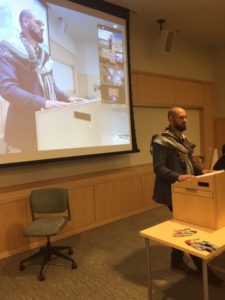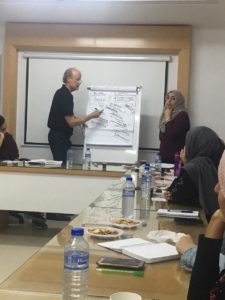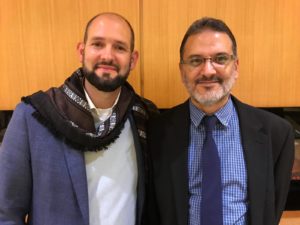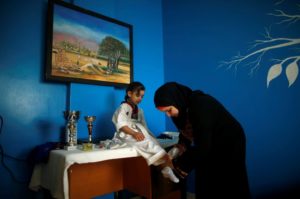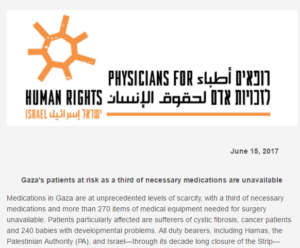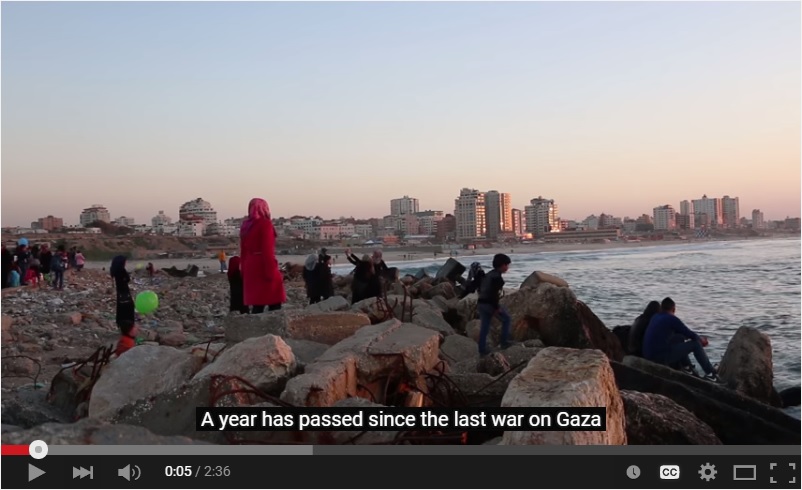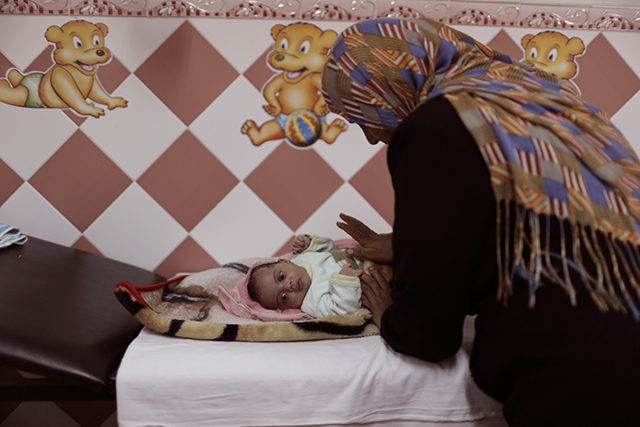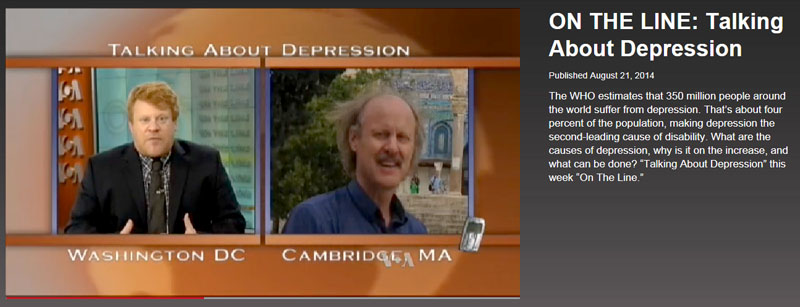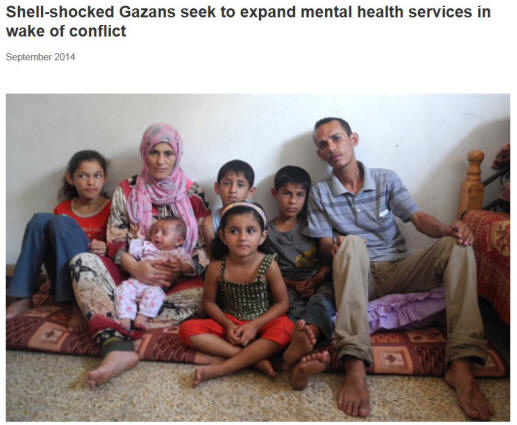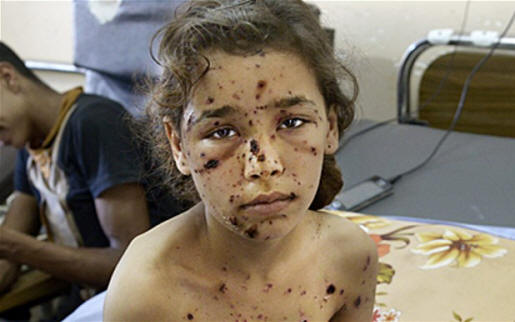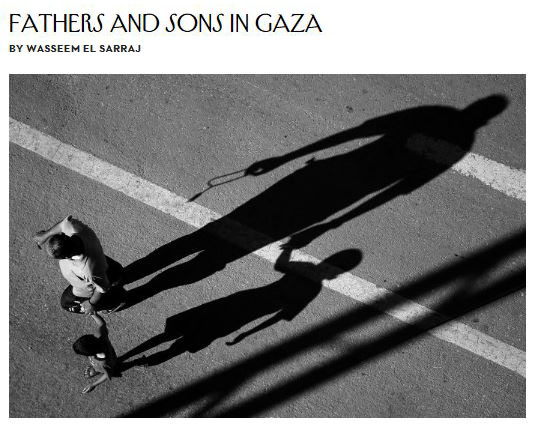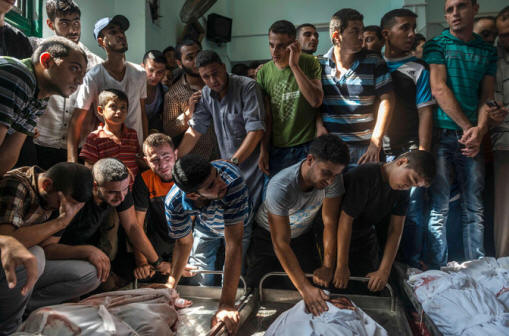2019
Save the Children Report, A Decade of Distress, Documents Urgent Need to Provide Mental Health Support for Gaza’s Children
The harsh and unchanging reality for children living in the Gaza Strip has recently been carefully documented by mental health professionals at Save the Children.
In an urgent, timely report, “A Decade of Distress”, Save the Children researchers describe the toll on children caused by three wars (2008-09, 2012 and 2014) in their short lifetimes; an 11- year Israeli-imposed land, sea and air blockade; and the constant threat of further conflict as well as rapidly accelerating economic hardship, from which there is little opportunity for escape.
Per the report, by 2017 — i.e. even before commencement of the ongoing Great March of Return and the ensuing response of Israeli security forces — the United Nations estimated that 25% of children in Gaza (290,000 children) still needed continuous psychosocial support.
When asked by researchers about behavioral changes noticed over the past few years, most caregivers reported that children were more nervous (93%), regularly experienced nightmares (63%), had difficulty sleeping (68%) and frequently wet the bed (53%). Nearly half the caregivers reported that children lost the ability to speak (42%).
Children and young people in Gaza are vulnerable, and, if they are not already living in a state of toxic stress, are at high risk of developing serious and long-term mental health issues, the report’s mental health professionals warn.
“Whenever I meet any child, they don’t have any more hope… They say, ‘Today we are alive but tomorrow we don’t know’… When you ask any child, ‘What do you want to be when you grow up?’ they answer, ‘Is there a future?’, ‘Will we be living tomorrow?’” — Child protection and mental health and psychosocial support worker, Save the Chidren partner organisation.
In stressing the need for mental health programs focused upon Gaza’s children, A Decade of Distress serves to underscore the importance of the Gaza Community Mental Health Programme’s critical initiatives.
Additional information addressing the current situation can be found at Lost Childhood: Gaza’s Youngest Generation Copes with Trauma Five Years After the Last War, where Sarah Algherbawi, a freelance writer and translator from Gaza, documents the stories of five children / toddlers, four of whom survived the 2014 conflict.
Palestinian Mental Health Conference Crosses Borders
On November 2, 2019 audiences at UMass/Boston, in Ramallah and in the Gaza Strip were brought together by video conference in an all-day event called ‘Palestinian Mental Health Without Borders: Challenging Barriers and Taking Down Walls.’
The event linked Boston participants with the Gaza Community Mental Health Program’s 7th International Conference, and a gathering in Ramallah sponsored by the Palestine Red Crescent Society.
Among the speakers were GCMHP head Dr. Yasser Abu Jamei in Gaza and Dr. Devin Atallah, an assistant professor of psychology at UMassBoston and board member of the Gaza Mental Health Foundation, who gave the keynote in Boston.
Attending the conference in the Gaza Strip was Gaza Mental Health Foundation board member Dr. Bill Slaughter, who conducted a training session on treating suicidal thoughts, opiate abuse and entrenched trauma nightmares while he was there.
2018
GCMHP Head Concludes Successful Tour
Dr. Yasser Abu Jamei’s third tour of the US in November 2018 got off to a jittery start when Israel subjected the Gaza Strip to days of bombardments just as he was preparing to leave, permits in hand.
With his departure delayed, he was unable to be present at California State University in San Bernardino on November 13 to speak about the frightening reality confronting Gazans – ‘Living Under Complex Trauma: On Borders, Violence & Militarism.’ Instead, he was live streamed from Amman.
Here is how Cindy Corrie described the November 16th event she helped arrange in Olympia, the state capital of Washington:When he finally arrived on the west coast, Dr. Yasser immediately hit his stride, with talks at churches, a community center and a university in Portland, Olympia, Seattle and Spokane.
“We filled a room at The Olympia Center with guests that included mental health providers, former members of a Rachel Corrie Foundation delegation to Gaza, local activists, a staff member from Congressman Denny Heck’s local office, and more. Dr. John Van Eenwyk, a colleague of the late GCMHP founder, Eyad Sarraj, and a visitor to Gaza over the past several decades, joined Yasser in conversation.
“We heard about the challenges to Yasser’s travel to the U.S., obstacles at Erez checkpoint for all Palestinians, about what has driven the extended Great March of Return in Gaza this year, and how the Gaza Community Mental Health Program is continuing to support the mental health needs of the confined and threatened Gaza population as conditions under Israeli occupation and siege continue to deteriorate.
“It was a short one-hour, lunchtime visit, and questions for Yasser could have extended indefinitely, but guests reported that this brief but thoughtful and most human connection was enough to bring them closer to the people and realities of Gaza. Our smaller community generously supported the funding effort for the new GCMHP facility, and we were delighted that at least one mental health provider attending came away interested in joining a medical delegation to Gaza.”
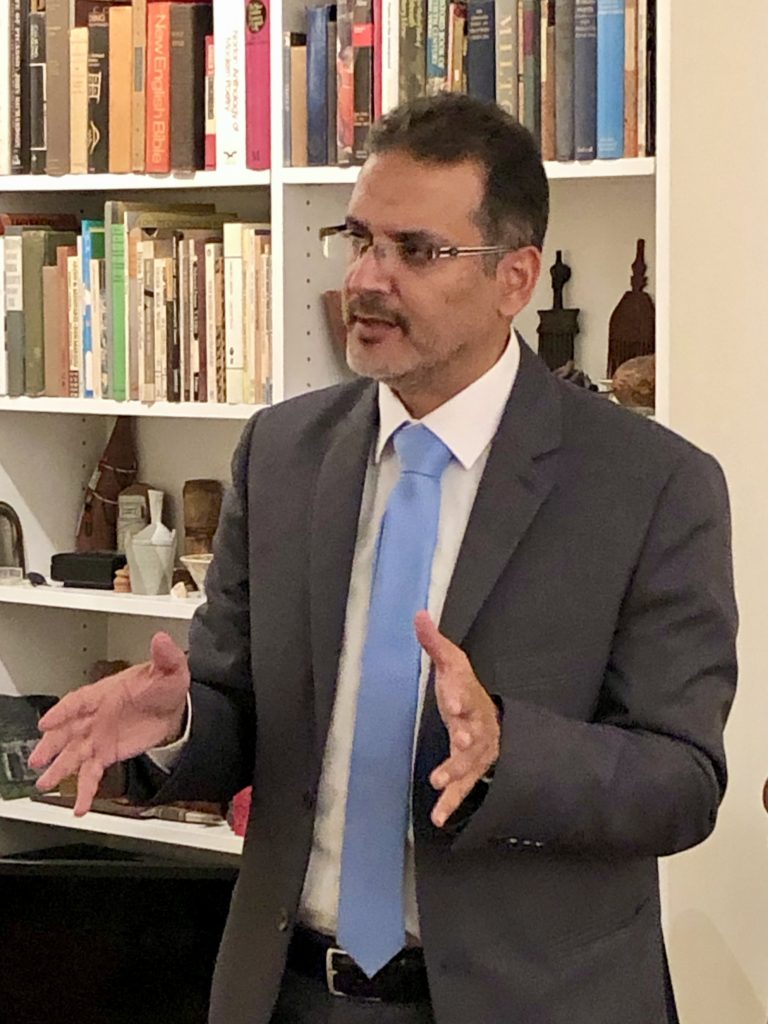
Dr. Abu Jamei speaks at a house party in Cambridge, Massachusetts
As Dr. Yasser explained in his fundraising appeal: “While we are doing our best to alleviate the suffering of Palestinians, we are also building for the day when Palestine will be free. Our new Center in Gaza City now stands ready to be furnished and equipped. We are now seeking to raise the final $110,000 that is needed to put the building at the service of the community, and hope to move into it in March 2019.
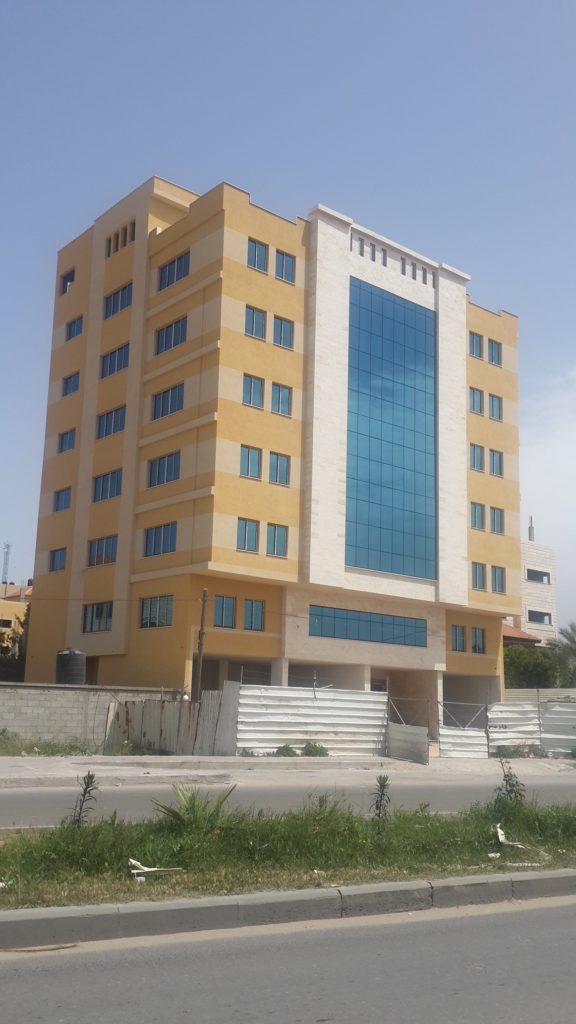 “It will contain our community mental health center offering counseling and therapy, our training and research department which enhances th
“It will contain our community mental health center offering counseling and therapy, our training and research department which enhances th
e capacity of hundreds of health workers each year, play rooms for the treatment of children, our publications unit and administration. The building will enable the $80,000 which we pay each year for rent to be spent directly on programs and treatment.”
Dr. Abu Jamei’s final talk in Cambridge MA took place at a spirited standing room only cultural celebration, ‘Gaza’s on My Mind.’ After being given a warm embrace by the community, he flew to Washington DC. There he participated in interviews and a round-table discussion, and held meetings with government representatives at which he described what the 11-year-long siege and current devastation in the Gaza Strip means for the mental health of Gaza’s residents.
We are pleased to report that by the time Dr. Yasser arrived home, the generous $20,000 matching grant offered to the GCMHP by the United Palestinian Appeal (UPA) had been fully met.
Summer 2018 Report: Head of Gaza Mental Health Foundation visits partner organizations in Gaza
In April-May 2018, Dr. Bill Slaughter, president of the Gaza Mental Health Foundation, gained entry to the Gaza Strip to witness again the critical work being done by our partner organizations.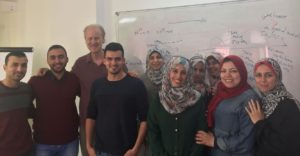
The three beleaguered women’s groups we support—Aisha, Al-Zahraa and Wefaq—continue to operate under very difficult circumst
ances, making women and children their prime focus. The Gaza Community Mental Health Programme (GCMHP), which has carried out emergency outreach to victims from the Great March of Return, maintains its direct clinical work with people with high levels of trauma, the training it offers other organizations as well as its own specialized educational programs.
During his time in Gaza, Dr. Slaughter worked with students doing the GCMHP postgraduate diploma in community mental health. He is pictured above (back row) with diploma students. He was also very encouraged to see the substantial progress that had been made on the new GCMHP headquarters, pictured below. To his left is the GCMHP executive director Dr. Yasser Abu Jamei, who is planning another visit to the US in the fall.
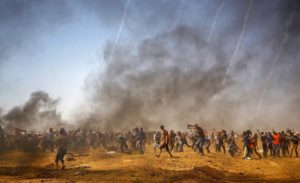
June 2018: Why Palestinians risk their lives to protest near Gaza-Israel fence
Dr. Yasser Abu Jamei is quoted in this NBC News piece about why people are demonstrating in the Gaza Strip. Read the full article.
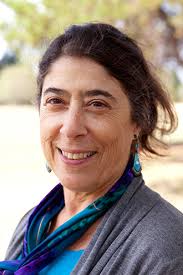 June 2018: IARPP clamps down debate on Palestinian mental health at its conference in New York
June 2018: IARPP clamps down debate on Palestinian mental health at its conference in New York
Physician Alice Rothchild writes here about disturbing developments within the International Association for Relational Psychoanalysis and Psychotherapy (IARPP): “A professional, international organization that is focused on the social and relational aspects of mental health might be expected to welcome a conversation that explores the impact of longstanding human rights abuses, military occupation and siege on a captive civilian population. Indeed, even the diagnosis of post-traumatic stress disorder may not be applicable to a society where the trauma is ongoing and rarely ‘post’. The link between a respect for individual human rights and mental health has been foundational to the work of the Gaza Community Mental Health Program…. But some staff at the IARPP responded more like an arm of the Israeli government than a professional mental health organization.” Read her full article.
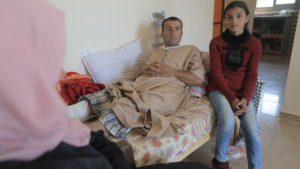 May 2018: 3 of 5 Palestinian children are suffering traumatic nightmares
May 2018: 3 of 5 Palestinian children are suffering traumatic nightmares
A Norwegian Refugee Council survey reveals that the Israeli repression of unarmed protest activity in the Gaza Strip is having a traumatic impact on children. Read the full article.
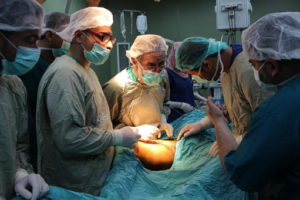 May 2018: Palestine: MSF teams in Gaza observe unusually severe and devastating gunshot injuries
May 2018: Palestine: MSF teams in Gaza observe unusually severe and devastating gunshot injuries
Medecins sans Frontieres (Doctors without Borders) has provided treatment to some 500 of the 5,000 or more injured during the “Great Return March” demonstrations in the Gaza Strip. They report that they are seeing bone-pulverizing wounds from gunshots leading to lifelong physical disabilities. Read more on the MSF website.
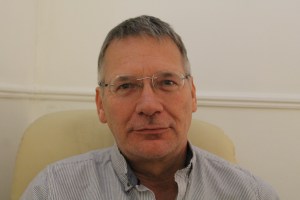 April 2018: On the 70th Anniversary of the Nakba, Slouching towards Salem: Reflections on the Zionism and the “New Anti-Semitism“
April 2018: On the 70th Anniversary of the Nakba, Slouching towards Salem: Reflections on the Zionism and the “New Anti-Semitism“
London psychoanalyst Martin Kemp brings a psychoanalytic perspective to Israel’s demonization of Palestinians and the current equation of anti-antisemitism with anti-Zionism. Read his article.
 April 2018: Mental health suffers as Gaza is choked
April 2018: Mental health suffers as Gaza is choked
It has been estimated that as many as 20 percent of Gaza’s people may have developed serious mental health conditions, with around 360,000 people requiring mental health or psychosocial interventions, according to a report by the World Health Organisation. Read the full article.
 March 2018: Pressure mounts over psychoanalysts’ 2019 conference, slated for Tel Aviv
March 2018: Pressure mounts over psychoanalysts’ 2019 conference, slated for Tel Aviv
The protest against the decision of the International Association for Relational Psychoanalysis and Psychotherapy to hold its 2019 international conference in Tel Aviv is gathering force. As physician Alice Rothchild writes, “Already the protest movement has created intense discussions and an increasing awareness of the realities on the ground for clinicians who are usually in the shadows.” Read the full article.
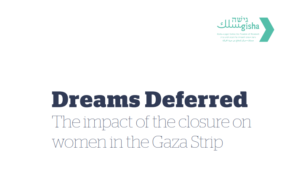 March 2018: Dreams Deferred: The Impact of the Closure on Women in the Gaza Strip
March 2018: Dreams Deferred: The Impact of the Closure on Women in the Gaza Strip
On International Women’s Day the Israeli human rights group Gisha published a report, ‘Dreams Deferred: The Impact of the Closure on Women in the Gaza Strip.’ It features Mariam Abu Alatta of the Aisha Association for Women and Child Protection, an organization supported by the Gaza Mental Health Foundation. Read the report.
February 2018: Palestinian mental health professionals in Israel say international conference should not be held in Tel Aviv
Opposition to the plan of the International Association for Relational Psychoanalysis and Psychotherapy to hold its 2019 international conference in Tel Aviv continues to grown. Now Palestinian Israeli mental health workers weigh in.
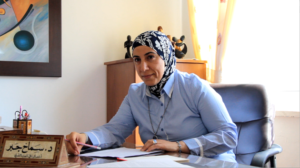
Samah Jabr, psychiatrist, East Jerusalem. Photo courtesy Mondoweiss
January 2018: Doctors urge mental health group not to meet in Israel in light of ‘massive, remorseless’ injury to Palestinians
At the end of 2017 three US mental health professionals joined Palestinian psychiatrist Samah Jabr in calling on the International Association for Relational Psychoanalysis and Psychotherapy to reconsider its decision to hold its 2019 meeting in Israel.
2017
November 2017: Palestinians in Gaza Suffer Enough Without Being Defamed as Sexual Deviants and Mentally Ill
GCMHP head Yasser Abu Jamei and New America Fellow Brian Barber respond to a piece in the Israeli newspaper Ha’aretz about the supposed implosion of Palestinian society in the Gaza Strip:
A November 11 Haaretz interview with a psychologist who occasionally visits the Gaza Strip portrays Gazan society as a community that has completely lost its moral backbone –- to the extent even, the interviewee Mohammed Mansour claims, that there is rampant sexual abuse and drug abuse and that, for all intents and purposes, everyone is mentally ill. Our longtime and extensive experience as mental health professionals and researchers in Gaza is very different. Virtually all of the assertions made in the article about Gaza’s population as a whole are speculative, based as they are on either no evidence or merely the interviewee’s impressions, anecdotes or case examples.
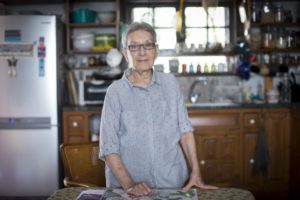
Dr. Ruchama Marton in her home in Tel Aviv. Photo by Shiraz Grinbaum, ActiveStills.org
September 2017: War crimes and open wounds: The physician who took on Israeli segregation
Israeli psychiatrist Dr. Ruchama Marton founded Physicians for Human Rights-Israel during the first Intifada and worked closely with Dr. Eyad El Sarraj. They are pictured together in this interview with her from the Israeli publication 972Mag:
On the occasion of her 80th birthday, Ruchama Marton, the founder of Physicians for Human Rights-Israel, talks about the atrocities she witnessed as a soldier, the enduring power of feminism, and why only outside help has a chance of ending Israel’s military rule over the Palestinians.
September 2017: Suicide and a lost generation: Gaza youth are dying before they can live
September 2017: Gaza: “It’s not a war of guns, but a war on minds”
Despair leading to suicide is reportedly on the rise in Gaza, especially among the young. These pieces in Al Jazeera and the Israeli publication 972mag.com describe the “war on the minds” that the people of Gaza are struggling with.
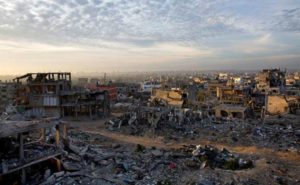
A general view of Gaza City after the last conflict between Israel and Hamas. Photo courtesy of the Globe Post
July 2017: A Not So Slow Genocide
Physician Alice Rothchild, a Gaza Mental Health Foundation board member, writes about what is happening in the Gaza Strip as a slowly unfolding genocide:
While the world is appropriately focused on the massive humanitarian crises in places like Syria and Mosul and South Sudan, two million Gazans face a growing manmade disaster that is largely invisible. After 50 years of occupation, a decade of strangulating siege, and multiple high and low-intensity Israeli assaults on an almost daily basis, a power struggle between Hamas and Fatah, aided and abetted by the Israeli government, now threatens the very lives of these beleaguered people….
June 2017: Medications in Dangerously Short Supply in Gaza
Physicians for Human Rights-Israel reports that there are “unprecedented levels of scarcity” of medications and medical equipment needed for surgery in Gaza, and that the closure and escalating electricity crisis have hit hospitals hard.
Read more in this message from Physicians for Human Rights.
A Decade of De-Development in Gaza:
Two Million People Denied a Human Standard of Living
Read the new report by Bo Schack, Director of UNRWA Operations in Gaza.
What is life like for Gaza Strip residents as the Israeli blockade enters its 12th year? How can mental health thrive under these conditions? Read the “100,000 Hours of Isolation” report for more.
2015
Missile deaths on Gaza beach
October 2015: Interview with Dr. Yasser Abu Jamei in the Institute for Palestine Studies Journal. Read the full interview.
September 25, 2015 – Mondoweiss published an article exploring interesting perspectives on mental health and collective depression in Gaza. Read more.
September 18, 2015 – The Nation published an article on the impact of the 2014 Israeli war on Gaza on surviving family members and the ways in which although many physical wounds have healed, psychological scars persist as trauma can have residual effects that change, develop, and devastate over time. Read the article.
September 2, 2015 – Truthout, an independent nonprofit news agency, recently published an article on the impact of living under chronic siege on Palestinian family health focusing on how the infant death rate in Gaza has increased for the first time in five decades. Read the article.
Gaza Mental Health Foundation Board member Othman Mohammad helped to create a new video series with the #Bissalameh program team. Watch the video and read more.
August 25, 2015 – Journalist Belen Fernandez shares her commentary on discourses around the complexity of psychological trauma experienced by Palestinian families in Gaza, see article Permanent Traumatic Stress Disorder in Gaza for more.
Voice of America: Gaza Mental Health President Bill Slaughter speaks to Voice of America
(begins about 10 minutes into segment)
World Health Organization: Shell-shocked Gazans seek to expand mental health services in wake of conflict
Newsweek: Doctors Start Work as UN Estimates 400,000 Gaza Children Need Psychological Care
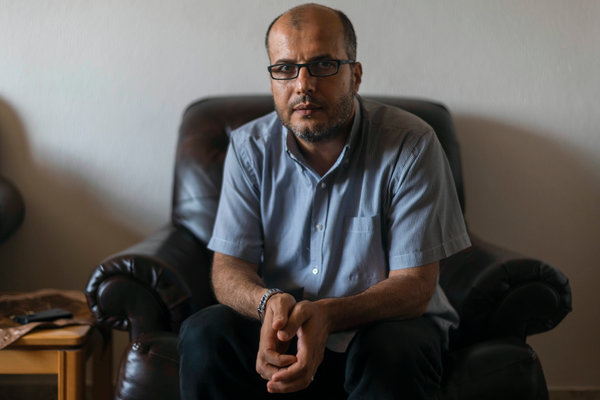
Hassan al-Zeyada, a psychologist who works at the Gaza Community Mental Health Program, at his home in Gaza. Photo by Sergey Ponomarev for the New York Times

A Palestinian man surveyed his devastated neighborhood Monday from the doorway of his destroyed home in Beit Hanoun, Gaza. Photo by Sergey Ponomarev for the New York Times
The Telegraph: Gaza conflict ‘causing PTSD in children’ after seeing dead bodies and witnessing heavy shelling
The New Yorker: Fathers and Sons in Gaza, July 26, 2014, by Wasseem El Sarraj, son of Dr. Eyad Sarraj, the Gaza Strip’s first psychiatrist and the founder of the Gaza Community Mental Health Programme
New York Times: In Fatal Flash, Gaza Psychologist Switches Roles, Turning Into a Trauma Victim

Hassan al-Zeyada, a psychologist who works at the Gaza Community Mental Health Program, at his home in Gaza. Photo by Sergey Ponomarev for the New York Times

Hassan al-Zeyada, a psychologist who works at the Gaza Community Mental Health Program, at his home in Gaza. Photo by Sergey Ponomarev for the New York Times
The Conversation: What Is Happening to the Mental Health of Young People Caught Up in Gaza Conflict? July 28, 2014 by Jon Snow

